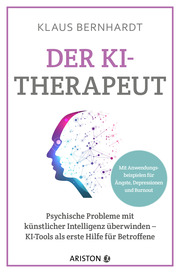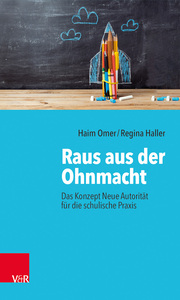Drug Abuse in Adolescence (E-Book, PDF)
Drug Abuse in Adolescence
eBook - Neurobiological, Cognitive, and Psychological Issues
Bibliographische Informationen
Format: Digitale Rechteverwaltung: Digitales Wasserzeichen
Beschreibung
Focusing on two central themes--the psychobiological evolution from youth to adult and the effects of drugs on the developing central nervous system--this important reference elucidates the mechanisms of chemical dependency in adolescents. Its multidisciplinary coverage analyzes addiction across major domains of human functioning against the backdrop of hormonal, cognitive, and other changes that accompany the transition to adulthood. Chapters discuss legal as well as illicit drugs, examine age-related social contexts, and present the latest findings on links between drug use and mental disorders.
Throughout, the contributors make clear that education is more valuable to understanding--and preventing--substance abuse than are prohibition and zero-tolerance thinking.
Included among the topics:
Cognitive development, learning, and drug use.Neurobiology of the action of drugs of abuse.Findings in adolescents with substance dependence based on neuroimaging tests.Alcohol abuse in adolescents: relevance of animal models.Effects of chronic drug abuse on the chronobiology of sleep in adolescents.Neurological and cognitive disorders arising from the chronic use of drugs of abuse.The multiple lenses for understanding its subject and the sensitivity with which causal nuances are treated makeNeuroscience of Drug Abuse in Adolescence an invaluable resource for clinical and child psychologists, psychiatrists, social workers, and addiction counselors.
Autorenportrait
Denise De Micheli obtained a bachelor's degree in psychology at Universidade Paulista and masters and doctoral degrees at the Universidade Federal de São Paulo. A professor in the Department of Psychobiology at Universidade Federal de São Paulo, she also serves as chief of the Interdisciplinary Centre of Studies in Neuroscience Adolescent Health and Education and is a member of the Association for Medical Education and Research in Substance Abuse.
André Luiz Monezi Andrade obtained a bachelors degree in psychology at Universidade Positivo and a masters degree at Universidade Federal de São Paulo, and currently is finishing his doctoral studies at Universidade Federal de São Paulo focusing on neurobiology of addiction in adolescence. He is a professor in the Department of Psychology at Universidade Anhembi Morumbi with special focus on psychopathology and psychopharmacology in adolescents.
Eroy Apericida da Silva obtained a bachelors degree in psychology by UniversidadePaulistana and masters and doctoral degrees at the Universidade Federal de São Paulo. He is a professor in the Department of Psychology at the Universidade Federal de São Paulo, where he also serves as Chief of Cognitive Therapies on Substance Abuse at Unidade de Dependência de Drogas (UDED).
Maria Lucia Oliveira de Souza Formigoni obtained a bachelors degree in medical biological sciences from Escola Paulista de Medicina (EPM), Universidade Federal de São Paulo (UNIFESP) in 1979, where she also completed her masters and doctoral studies in psychopharmacology and psychobiology, respectively. She is an associate professor and the prorector of post-graduate studies and research of the Universidade Federal de São Paulo.
Inhalt
E-Book Informationen
„eBooks“ sind digitale Bücher. Um eBooks lesen zu können, wird entweder eine spezielle Software für Computer, Tablets und Smartphones oder ein eBook-Reader benötigt. Da es eBooks in unterschieldichen Formaten gibt, gilt es, folgendes zu beachten.
Von uns werden digitale Bücher in drei Formaten ausgeliefert. Die Formate sind EPUB mit DRM (Digital Rights Management), EPUB ohne DRM und PDF. Bei den Formaten PDF und EPUB ohne DRM müssen Sie lediglich prüfen, ob Ihr eBook-Reader kompatibel ist. Wenn ein Format mit DRM genutzt wird, besteht zusätzlich die Notwendigkeit, dass Sie einen kostenlosen Adobe® Digital Editions Account besitzen. Wenn Sie ein eBook, das Adobe® Digital Editions benötigt, herunterladen, erhalten Sie eine ASCM-Datei, die zu Digital Editions hinzugefügt und mit Ihrem Account verknüpft werden muss. Einige eBook-Reader (zum Beispiel PocketBook Touch) unterstützen auch das direkte Eingeben der Login-Daten des Adobe Accounts – somit können diese ASCM-Dateien direkt auf das betreffende Gerät kopiert werden.
Da eBooks nur für eine begrenzte Zeit – in der Regel 6 Monate – herunterladbar sind, sollten Sie stets eine Sicherheitskopie auf einem Dauerspeicher (Festplatte, USB-Stick oder CD) anlegen. Außerdem ist die Anzahl der Downloads auf maximal 5 begrenzt.
Weitere Artikel aus der Kategorie "Psychologie/Angewandte Psychologie"
Neuerscheinung

Derzeit nicht verfügbar

im Buchladen vorrätig

Vergriffen





